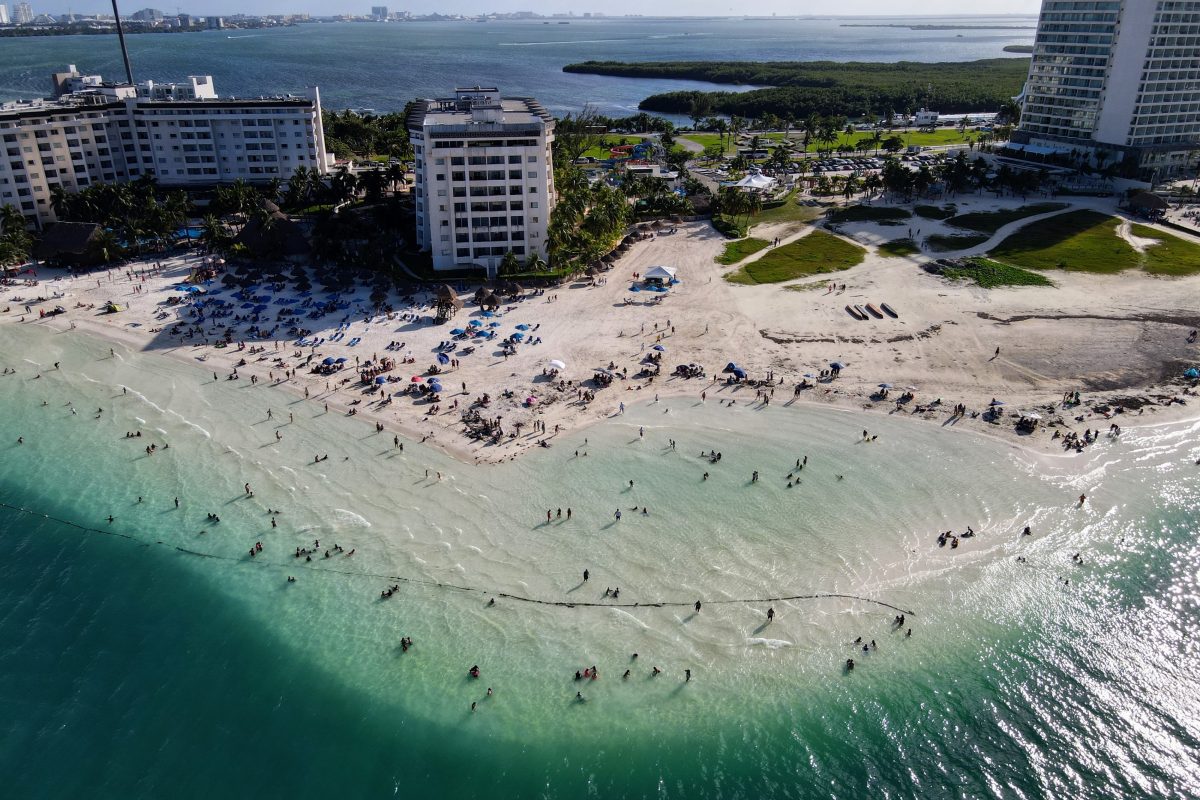With its reputation as a tropical paradise boasting stunning beaches, lush rainforests, low costs of living, quality healthcare, and welcoming communities, it’s easy to romanticize retiring in Costa Rica. But the idealized expatriate lifestyle portrayed on travel shows and home renovation programs doesn’t always match reality on the ground. While there are many positives, there are also reasons not to retire in Costa Rica. This in-depth guide covers the key factors to weigh when evaluating if Costa Rica aligns with your retirement vision or if you may be better off choosing a different destination domestically or overseas.
[ez-toc]

Why Retire in Costa Rica? The Draw for Expats
Before diving into the negatives, let’s first examine why Costa Rica attracts so many North American retirees seeking adventures abroad. What’s the appeal?
Affordable Cost of Living – Lower costs for real estate, food, healthcare and utilities means pensions stretch further. Comfort on a budget.
Ideal Weather – Thanks to the tropical latitude, temperatures stay mild year round for endless sunny beach days. No extreme cold or heat.
Thriving Expat Community – Retiring abroad is easier thanks to established retiree enclaves across Costa Rica. Connect to knowledgeable peers.
Spectacular Nature – With stunning beaches, lush rainforest, exotic wildlife and volcanoes, outdoor lovers thrive.
Great Healthcare – Excellent medical care is available at a fraction of U.S. prices. Procedures cost 50-75% less.
Laidback Lifestyle – The “pura vida” mentality prioritizes enjoying life versus rat race ambitions. Less stress.
Adventure Haven – Zip lines through canopies, surfing killer waves, rafting rapids, sport fishing – Costa Rica offers nonstop thrills.
Democratic Freedoms – Costa Rica has enjoyed remarkable stability compared to turbulent neighbors. Neutral policies and high literacy fosters prosperity.
Ideal Climate for Activity – With endless summer, outdoor hobbies like golfing, hiking, watersports happen year-round alongside ecotourism.
Now that we have recapped the highlights that make Costa Rica enticing, let’s examine key factors to weigh the downsides.

Health Concerns and Care Limitations
A major consideration for retirees is ensuring quality healthcare, especially with pre-existing conditions. But Costa Rica has drawbacks:
Pre-Existing Condition Limits – Private insurers deny or restrict coverage for existing health issues. Must prove stable coverage the prior year to qualify which can be difficult after retiring domestically.
Less U.S. Insurance Acceptance – Few Costa Rican hospitals and doctors accept Medicare, Medicaid, or U.S. private insurance. Must pay out of pocket then file claims. Reimbursement uncertain.
Specialist Shortages – Access to specialists including cardiologists, neurologists, pulmonologists, and geriatricians proves challenging outside major cities. Wait times are longer in rural areas.
Poor Chronic Illness Care – Management of lifelong conditions like diabetes, cancer or autoimmune diseases lags compared to U.S. standard of care. Lacking specialists impacts outcomes.
Language Barriers – Trying to explain complex medical history or describe symptoms in broken Spanish is problematic. Doctors may not understand important nuances.
Dental Coverage Gaps – Dental insurance rarely covers crowns, bridgework, or implants. Orthopedics and prosthodontics not widely available.
Sanitation Standards – Expect antiseptic standards at clinics to be less consistent. Ask about autoclave device testing. Bring disinfectant wipes.
Counterfeit Drugs – Lax regulation of farmacias means patients risk buying expired or counterfeit medications. Verify registration and prescription origins.
Ambulance Limitations – Ambulances lack monitors, respiratory devices and training compared to U.S. EMTs. Consider ties to air evacuation providers like Medjet.
Retiring abroad with chronic illnesses or as you age requires evaluating if Costa Rican healthcare sufficiently meets your ongoing needs.

Safety and Crime Concerns
While Costa Rica boasts lower crime rates than regional neighbors, risks remain that jeopardize personal security:
Petty Theft – Pickpocketing, purse snatching, vehicle break-ins and cat burglaries are common across tourist zones and cities. Never leave valuables unattended.
Taxi Crimes – Avoid hailing cabs on the street. Call reputable companies instead. Know the fare range ahead of time to avoid scam overcharges.
Hotel Room Thefts – Guests often report thefts of laptops, cameras, jewelry and money from locked hotel rooms due to inside jobs. Use the safe.
GPS Danger – Mounting a smartphone or standalone GPS on the dash has led to armed assaults and carjackings from thieves tracking devices. Keep out of view.
Police Corruption – Low police pay scales mean bribery attempts are common during minor traffic stops. Never pay mordida (bribes).
Border Crossing Risks – Overland crossings from Panama and Nicaragua traverse desolate stretches prone to drug trafficker and migrant activity. Only usecheckpoints during daylight hours.
Wildlife Attacks – Poisonous snake bites, aggressive monkeys going after food, shark attacks, and other wildlife incidents pose serious risks.
Natural Disasters – Earthquakes, flooding, landslides, hurricanes and volcanic eruptions can damage property and compromise safety.
While Costa Rica is relatively safe, expat retirees must exercise greater vigilance against property crime and scams that target foreigners.
Language and Cultural Barriers
Beyond simply an issue of convenience conducting daily business in English, lack of Spanish fluency isolates retirees from thriving within the local culture:
- Can’t Make Tic0 Friends – Building genuine local relationships and integrating into your new community relies on basic communication. You remain an outsider without conversational Spanish.
- Isolated in Expat Bubble – English speakers cluster together out of necessity, rarely venturing beyond Anglo communities. Retreat rather than immersion.
- Constant Dependence on Others – Simple tasks like banking, making doctor’s appointments, and shopping require bilingual helpers instead of autonomy.
- Failed Integration – Without language skills, misunderstandings of local culture and customs lead to frustration. Learning social norms and taboos proves difficult.
- Stifled LOCAL Travel – Navigating off the beaten track to hidden waterfalls, small villages, and family farms requires knowing some Spanish. You won’t venture far.
- Can’t Access Emergency Services – Calling 911 or trying to explain an emergency without key vocabulary proves near impossible or dangerously confused.
- Unqualified for Residencies – Meeting requirements for living legally long-term relies on demonstrating language skills and cultural integration.
Without making sincere efforts to learn, life as an expat in Costa Rica quickly becomes very small, segregated, and full of unnecessary difficulties.

Public Transportation Challenges
For retirees unable or unwilling to drive in Costa Rica, public transit options pose hassles:
- Infrequent Bus Schedules – Rural routes run only a few times per day forcing planning around limited schedules. Buses stop by 7 pm. Going out at night requires expensive taxis.
- Lacking Transit Hubs – Outside major cities, central bus stations don’t exist. Stops are dispersed throughout towns. Transfers require crisscrossing town on foot to each station.
- No Schedules or Maps – The concept of printed routes does not exist. Locals know routes by heart but visitors face confusion and daily questions.
- Route Limitations – Destinations are restricted to highway corridors and urban centers. Getting to remote beaches, mountain towns, or off the highway trails requires private transport.
- Scarce Taxis – Trying to hail cabs outside major hubs proves near impossible. Often no drivers cruise for fares or wait at stands in small towns.
- Uber NonExistent – Rideshare services like Uber only operate in San Jose. You must have a smartphone and credit card to use reliably.
- Night Travel Impossible – Taxi and bus services shut down after 8 pm even in sizable towns. Those without cars can’t venture out for dinner and events in the evening safely.
Retirees reluctant to drive miss out on spontaneity and independence getting to scenic destinations beyond major hubs easily.
Affording International Vacation Travel
With family and friends still up north, expensive international flights hinder visits:
- High Airfares – Roundtrip flights back to the U.S. or Canada routinely run $500-$1000. making frequent visits difficult on fixed incomes without luxury budgets.
- Multi-Leg Journey – Flights involve at least 2-4 segments and exhausting 12+ hours of cramped travel each way. Journeying in coach poses physical burdens.
- Winter Ticket Price Hikes – Visiting during Christmas holidays or snowbird season spikes demand and airfare costs when friends and family have free time to visit.
- Baggage Fees – Bringing gifts and heavy luggage racks up extra charges around $100 total for additional bags. Carry on restrictions limit volume.
- Shuttle to Airports – Just getting to the San Jose or Liberia airport costs $100+ each way if you can’t drive yourself or lack bus access.
- Pet Boarding – Flying back to visit family and friends means paying $25 per day or more to board pets unless you have someone to pet sit locally.
- Re-Entry Headaches – Every trip abroad involves the stress of proving current residency status to avoid being classified as a tourist upon landing back in Costa Rica to bypass immigration rules.
Infrequent visits take tolls on relationships. Make sure your budget realistically supports maintaining bonds with loved ones abroad.

Adapting to Development Disparities
Moving from modern cities and suburbs, Costa Rica’s infrastructure deficits causes culture shock:
- Constant Power Outages – Voltage spikes and surges even in cities require power backups to prevent computer/AC damage. Remote areas suffer multi-day blackouts.
- Water Shut Offs – Running out of water entirely for days routinely happens during dry season water rationing periods. Expect frequent disruptions.
- Spotty WiFi – High speed internet still relies on above-ground lines vulnerable to weather even in some cities. Streaming/calls drop.
- Pollution – Burning trash and vehicle exhaust produces high particulate levels rivaling Beijing in San Jose. Endemic littering plastics blights even beaches.
- Unreliable Tradespeople – Finding vetted contractors and professionals you can depend on without constant supervision proves extremely difficult. Shoddy work.
- Government Bureaucracy – Necessary tasks like getting utilities turned on require infuriating levels of paperwork and rubber stamping across multiple agencies.
- Wild Dogs – Uncontrolled populations of former pets run in packs across most communities. Attacks on people or owned pets occur.
- Lack of Maintenance – Streets deteriorate into moonscapes of potholes and sidewalks crumble from lack of initiative to perform upkeep or improvements. Complaints fall on deaf ears.
Rural life holds considerable undeniable charm but also frustrating reminders of disparities in public services and development.

Downsides of Expat Communities
While shared camaraderie makes the transition smoother, insular expat bubbles prevent true integration:
- Reinforcing Bad Behaviors – “This is how we do it back home” mentality fails to adapt to different cultural norms. Does not learn from locals.
- Living in the Past – Constant nostalgic conversations about careers, homes, restaurants, stores in North America prevents fully embracing new home.
- Spreading Misinformation – Rumors, assumptions and outdated advice get reinforced without local perspectives. Perpetuates unhelpful myths.
- Artificial Cultural Experience – Never forced to learn language or make local friends relying excessively on expat support systems.
- Price Gouging – Some profiteers exploit foreign dependence with higher lawyers fees, taxi fares, English menus adding 20% premiums compared to local pricing.
- Lack of Motivation to Integrate – Why adapt when you can eat at English pubs and watch football with other Americans every weekend? Risk stagnation.
The security of expat bubbles risks complacency, closed thinking, and separation from broader communities.
Unrealistic Expectations About Lifestyle
Misconceptions abound about the ease of living an Instagram-worthy beach life in Costa Rica:
- Idealizing “Pura Vida” – The mainland mentality stands at odds with Type A personalities. Stress is self-created without adjusting expectations.
- Keeping North American Standards – Insistence everything compare favorably to back home will lead to constant disappointment and irritation.
- Not Learning Local Ways – Refusal to adapt culturally means reproducing frustrations rather than thriving wisely within a different paradigm.
- Undervaluing Language – You cannot immerse without conversational abilities in Spanish yet many dismiss proper study to “pick it up” by osmosis.
- Prioritizing novelty over practicality – Fun excursions should not guide home choice over boring criteria like proximity to hospitals, stores, climate preferences. Do not make life unnecessarily hard by picking pretty yet remote areas.
- Not Fitting In – Clashing sensibilities between expat personalities versus local community values causes tensions. Assess open mindedness.
- Boredom – After the initial awe fades, a lack of stimulating activity or purpose can lead to restlessness or dreams of moving again soon.
Be realistic about the trade offs of relocating abroad to avoid regrets from glossed over downsides. Know yourself.
Potential Isolation and Homesickness
Particularly after a partner dies, the distance from loved ones causes profound loneliness:
- Missing Family Milestones – From weddings to funerals, births to graduations, you will be absent for shared moments that reinforce bonds. Guilt compounds grief over all you miss.
- Holidays Apart – Major celebrations lack the same intimate comforting nostalgia. Traditions that anchor identity drift away.
- Few Local Peers – Ageism exists. Making local friends in their 30s to 50s proves challenging when your peers back home are aging.
- Fading Relationships – Bonds frail from months without contact. With less in common daily, keeping depth in relationships requires deliberate effort.
- Emergency Travel – Getting back urgently for health crises or needs is complicated by distance. What should take hours now takes days.
- Communication Challenges – Different time zones, costly international calling, and unreliable internet hamper talking frequently or spontaneously.
- Lacking Family Support – Who can you count on to care for you or your home as age related mobility declines arise when your family remains thousands of miles away? Being alone becomes frightening.
A strong support system helps weather aging abroad. Ensure yours thrives across borders before relocating far from all that’s familiar.
Barriers to Starting a Business
Contrary to stories peddled by gurus of running businesses from the beach, numerous obstacles exist:
- Restrictive Immigration Laws – Regulations limit foreigners ability to obtain work permits. Must invest significantly in an existing business to qualify. Prohibits entrepreneurs.
- Protectionist Policies – High import duties and quotas safeguard domestic businesses making imported materials/inventory cost prohibitive. Obtaining market share challenging.
- Online Payment Hurdles – New businesses struggle obtaining Costa Rican bank accounts and merchant Visa/MC accounts critical for collecting payments from foreign customers. Must operate in cash lacking financial infrastructure.
- Unreliable Infrastructure – Frequent power outages and internet disruptions hampers productivity. Lack of street addresses complicates shipping. Reduces competitiveness.
- Tax Confusion – Complex bureaucracy across municipal, provincial and federal tiers levy confusing taxes and ever changing requirements without adequate publications. Even experts remain uncertain fulfilling obligations accurately.
- Labor Laws – Heavily favor employees in dismissal disputes. Maintaining quality staff despite performance issues proves extremely difficult for employers.
- Lack of Customers – Small population with low consumer spending caps market size. Must appeal to foreign tourists who pass through briefly. Locals rarely have disposable income for extras.
Understand the regulations and market barriers that add frustrations to operating any ventures locally before assuming you can recreate a North American business model.
Should You Retire in Costa Rica? Final Thoughts
Retiring abroad often gets approached through rose colored glasses that ignore the effort required to recreate a satisfying, supported life thousands of miles from the familiar. But utopia exists only in the mind. Perfect locations do not exist, only perfect states of openness and peace within.
Costa Rica, like anywhere on Earth, contains tradeoffs alongside its beauty. Mindfully examine your temperament, priorities, abilities and needs against the reality on the ground using the insights within this guide.
The stunning natural beauty and friendly communities can certainly nurture amazing lives. But also arrive with honest assessment of the challenges that arise living an immigrant existence in any foreign land. With realistic expectations, the pura vida lifestyle thrives best.
Frequently Asked Questions
While many love the country, concerns include cultural differences, potential language barriers, adjusting to a different pace of life, and dealing with bureaucracy.
Like any country, there are safer areas and regions with higher crime rates. It’s essential to research and choose your location wisely.
While Costa Rica has a reputable healthcare system, it might not match the speed or efficiency some expats are used to in their home countries.
Some retirees find that while basic living is affordable, luxury goods, imported items, and certain taxes can be higher than expected.
Some areas, especially rural ones, might lack the infrastructure quality found in more developed countries, including road conditions and utility reliability.
While Costa Ricans are generally welcoming, there can be a cultural and language barrier that some retirees find challenging to overcome.
Foreigners can own property, but it’s crucial to understand local regulations and work with a reputable lawyer to avoid potential pitfalls.
The humid and rainy conditions in certain regions can be a challenge for some, especially those with specific health concerns.
Costa Rica is prone to earthquakes, volcanic activity, and heavy rainfalls leading to landslides in certain areas.
Some expats might feel a sense of isolation, especially if they don’t integrate into local communities or if they live in more remote areas.



